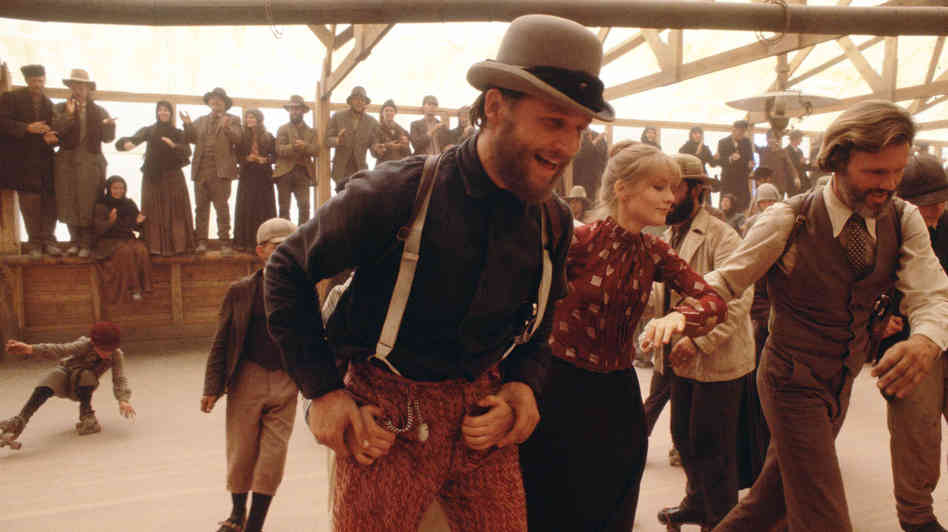
On March 3, Turner Classic Movies will be broadcasting the most historic flop in Hollywood History, 1980’s Heaven’s Gate. Last year, a restored version of Heaven’s Gate screened at the Venice Film Festival and was released on DVD by Criterion Collection. A new generation of American film critics revisited the film, and, surprisingly, some have praised it. The movie has always had its fans in Europe.
Heaven’s Gate starred Kris Kristofferson, Christopher Walken, Jeff Bridges, Sam Waterston and Isabelle Huppert, plus hundreds of extras and horses. It is a revisionist retelling of Wyoming’s Johnson County Wars of 1890 – sinister capitalists hire assassins to claim economic power at the expense of hardworking immigrants. It is three hours and thirty-nine minutes long.
Upon release, Heaven’s Gate was not popular with moviegoers, and consequently was financially unsuccessful. It was also trashed by critics, most notably by The New York Times Vincent Canby. Roger Ebert wrote, “It is the most scandalous cinematic waste I have ever seen, and remember, I’ve seen Paint Your Wagon”.
Here’s why Heaven’s Gate is historically important. In 1967, Bonnie and Clyde and The Graduate kicked off the American New Wave. After the low-budget Easy Rider made gazillions in 1969, Hollywood studios granted funding and artistic freedom to directors like Francis Ford Coppola, Martin Scorsese, Bob Rafelson and Roman Polanski. This resulted in masterpieces like Chinatown, Five Easy Pieces, The Conversation, Jeremiah Johnson, The French Connection, The Last Picture Show and Michael Cimino’s The Deer Hunter. Deer Hunter, a three-hour Vietnam War epic, won five Oscars, including Best Picture and Best Director for Cimino.
To make his next picture, Heaven’s Gate, Cimino sucked $44 million (an immense sum for the era, equivalent to $120 million today) out of United Artists. When the film grossed only $3 million in the US, United Artists was forced to merge into MGM. So Heaven’s Gate single-handedly killed a major Hollywood studio. If that weren’t bad enough, it was also the final straw in a series of artistically driven financial flops, and the studios tightened the leashes on directors and became more risk averse with scripts, thereby bringing an entire era, the American New Wave, to a close.
I have always deeply admired The Deer Hunter, and I eagerly saw the original cut of Heaven’s Gate when it was released 33 years ago. At the time, I found it to be boring, confusing and self-indulgently overlong.
Last year, I took another look at the 2012 restoration of Heaven’s Gate. It is a very ambitious film that contains many visually arresting and especially beautiful shots. It is interesting to see Sam Waterston play a bad guy for once and downright glorious to see the 26-year-old Isabelle Huppert naked. So much for the good news.
Much of Heaven’s Gate is literally dark (as in hard to see the action). Cimino overused smoke and fog, which also obscure the action. Blending together in sepia tones, the immigrants are hard to tell apart and speak in a babel of European languages. Because of the sound mix, it’s very difficult to comprehend much of the dialogue. The politics of the film is laughably heavy handed. The plot is confusing at times and often put on hold for set pieces that do not advance the story, most notably a bizarre roller skating sequence. There are several other scenes which are equally silly, which I won’t spoil for you, but which are described in the Ebert review linked above. The ponderous length of the film is staggering. I still found Heaven’s Gate to be a brutal, if occasionally unintentionally humorous, viewing experience.
Anyway, here’s your chance to see for yourself: March 3 on TCM.
